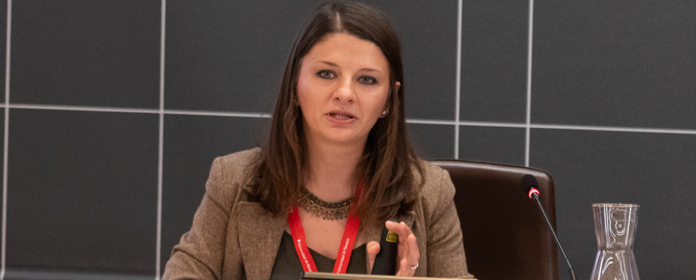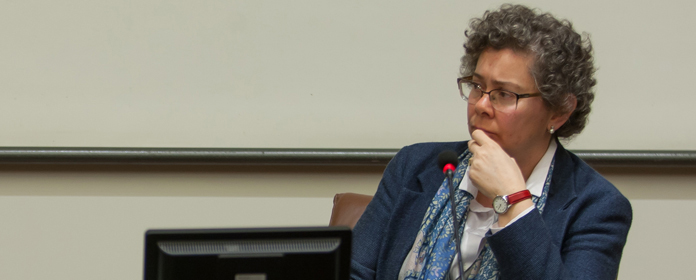Journaling staff during quarantine: opening up our inner world while the outside world is Closed
Sofía Brotóns, doctoral student at Institute for Culture and Society, assures that "writing can be a great ally for our mental health and a very useful element to overcome difficult situations".

PHOTO: Courtesy
The coronavirus crisis has led a large part of the world's population into situations of great stress and uncertainty, both in terms of having to stay at home and the danger of contracting the disease and the looming economic crisis. Faced with a status that challenges everyone, "writing can be a great ally for our mental health and a very useful element for coping with difficult situations," said Sofía Brotóns, a doctoral student at the project 'Public discourse' of the Institute for Culture and Society (ICS) of the University of Navarra.
Throughout history, he said, major crises have left us with "invaluable historical documents" in the form of personal diaries. The benefits of writing about the experience staff lie in the fact that narratives increase metacognition. In other words, thoughts and emotions are objectified in order to analyze them from another perspective. "Writing financial aid helps us to generate new meanings of situations that we may not be understanding as we would like," he pointed out.
In his research, Brotóns has found that keeping a diary and rereading it can provide perspective and optimism, financial aid to relativize certain problems and to develop the present moment in a more bearable way. In fact, according to several programs of study, writing brings mental and physical benefits and can help to better cope with the integration of a traumatic experience in the autobiographical report .
Narratives and quarantineFor those who must keep quarantine at home, the researcher reminded us that writing allows us to open our inner world at a time when the outside world is Closed.
He has argued that people live our lives as if we were writing a story, that is, narratively. Narrativity explains how the "me of the past" became the "me of the present" and will become the "me of the future, connecting one's story with the context and others. "When that narrativity is interrupted, one can have the feeling that the story is not moving forward and one can lose the meaning of the story," he said. In this line, writing allows us to continue that vital narrative and to liven up the passage of time".
Moreover, by writing, one becomes the architect of that story, and that gives a sense of constant novelty that seems particularly beneficial for these days.
resource "Writing is a healthy and effective way of relieving stress," said Brotóns, since verbalizing status allows you to detach yourself from it. For people who have less time, the expert recommends making lists, for example, counting the things they are learning during these days.
Where do I start?Keeping a diary requires constancy: "Some days you may write less or less clearly, but the essential thing is the set of all those daily narratives". Brotóns recommended writing at the end of the day and using it as a moment staff before resting.
According to the researcher, it is enough to dedicate five to 15 minutes to introspection and to open an inner dialogue. It can be used to take stock of the day and end it. In addition, she emphasized that "without any doubt, it can be an ideal moment that favors relaxation and dissipates stress".
"When this unfortunate status passes, it will be very satisfying to have that collection of personal narratives and to be aware of having overcome it," he concluded. In the future, this diary staff will also be a method for looking ahead to new challenges and difficulties.
Sofía Brotóns is doing her doctoral thesis at the ICS on 'Written narratives and reflexivity'. In it she analyzes how written narratives can help adolescents at risk of exclusion to development staff and the construction of their identity. Although these narratives can be especially useful in adolescents -because of the moment of vital transition in which they find themselves-, she has stressed that writing financial aid helps people of any age to overcome difficult situations.




